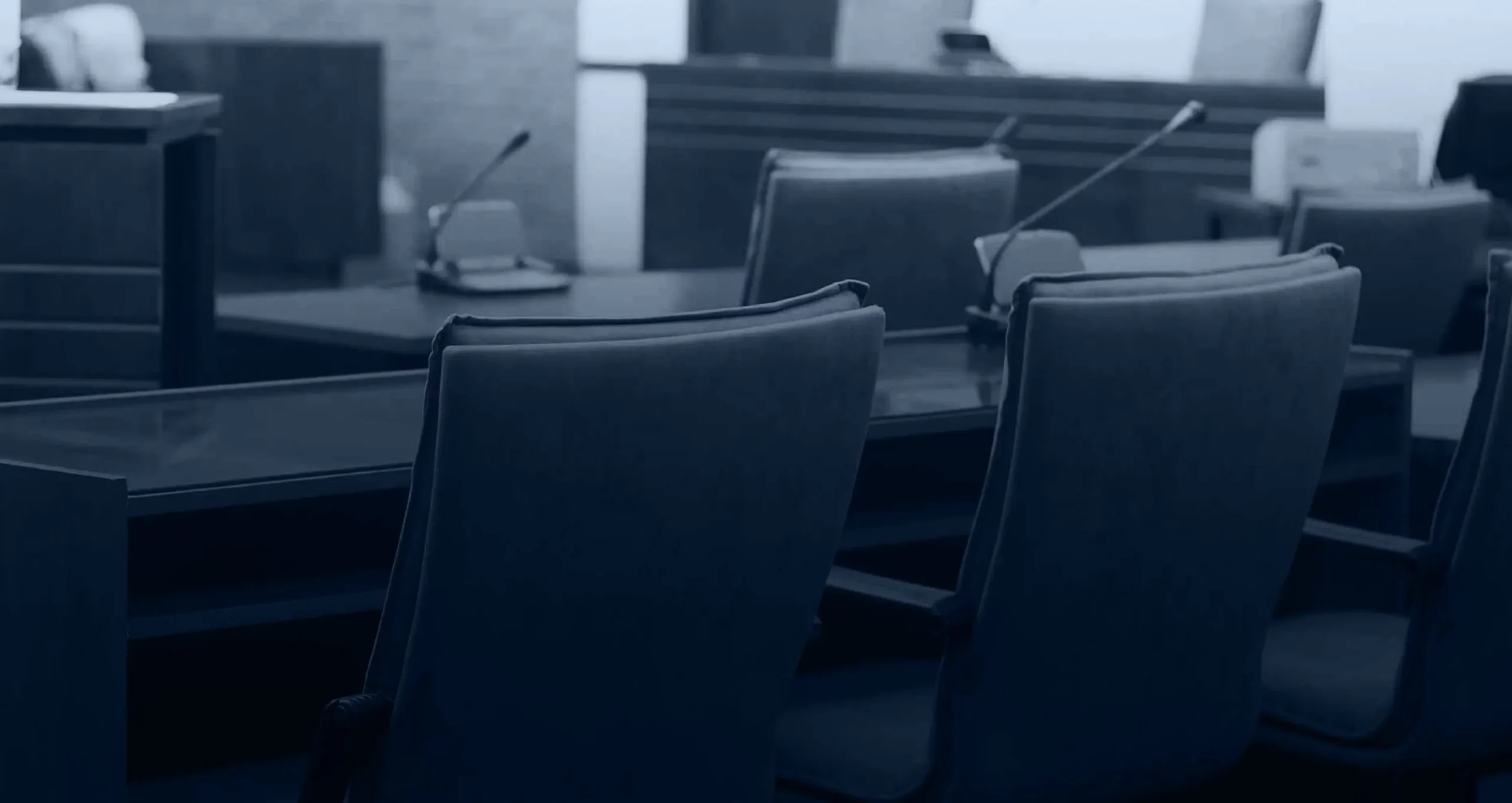The laws of the state where the cause of death occurred usually determine who can file a wrongful death lawsuit. In most states, the right to pursue a wrongful death action belongs to the deceased victim’s surviving spouse, closest family members, or personal representative (such as the executor of the deceased’s estate).
If you recently lost a loved one in circumstances caused by someone else’s negligence or wrongdoing, you or someone close to you may have the right to pursue a wrongful death lawsuit. Here’s an overview of how wrongful death actions generally work, and how an experienced wrongful death lawyer can handle the legal claim process on your behalf.
The Basis for a Wrongful Death Lawsuit
A wrongful death lawsuit is a legal action that seeks compensation for a death caused by someone’s careless, reckless, or intentional actions. It can stem from an accident or incident that immediately caused a loss of life, or from harmful circumstances that contributed to a cause of death over time. Here are some examples of tragedies that can lead to wrongful death lawsuits.
Motor Vehicle Accidents
Every year, tens of thousands of people across the United States die in motor vehicle accidents. Those tragic fatalities can form the basis for a wrongful death lawsuit when they’re the result of, for example, someone else’s:
- Distracted driving
- Alcohol or drug impaired driving
- Speeding or reckless driving
- Drowsy driving
These are just a few examples. Anytime a car, truck, bus, motorcycle, or other motorized vehicle crashes and causes fatalities because of someone’s wrongful decisions, actions, or inaction, it may support pursuing a wrongful death claim.
Medical Malpractice
Patients who consult medical providers rightfully expect they’ll receive a reasonable standard of care. But doctors, nurses, and other healthcare workers sometimes make mistakes that have deadly consequences. They may, for example, misdiagnose a potentially life-threatening illness, recommend the wrong treatment or medication, slip-up while performing a surgery or procedure, or fail to monitor a patient’s condition while under anesthesia. These and similar errors can support the filing of a wrongful death lawsuit if they represent a failure to meet the standards of quality and treatment expected of medical professionals.
Falls, Drownings, Fires, and Other Premises Liability Accidents
Tragic accidents caused by unsafe conditions at commercial, residential, or public properties can also support wrongful death claims. Owners, tenants, and managers of properties owe a duty to protect visitors to their premises from known or knowable hazards. If a dangerous property condition leads, for example, to a fatal fall from a roof, a drowning in a pool, or a deadly fire, the tragic loss of life could justify a wrongful death lawsuit.
Dangerous Products
The manufacturers of the products we use and consume every day at home, at work, at school, and in public have an obligation to ensure our safety. Defects in the way products are designed, manufactured, or marketed can lead to catastrophic mishaps and fatal trauma. It could be appropriate to pursue a wrongful death lawsuit after someone dies because of, for instance:
- Deadly, undisclosed side-effects of over-the-counter or prescription medication
- Using a home appliance that catches fire or explodes because of faulty wiring
- Suffering food poisoning from bacterial contamination in fresh produce
- Choking on a small part that broke off from a toy
The law tends to hold manufacturers strictly liable for the harm caused by their defective products. That means that a lawyer need only show that a defect caused fatal injuries to prove a wrongful death case against one.
Toxic Exposures
Environmental contaminants can cause untimely deaths, some instantaneous and some that develop over years or decades. A person could die from exposure to toxic chemicals in a train derailment, for instance, or because they spent years drinking and bathing in water tainted with cancer-causing chemicals. Virtually any scenario in which a death results from the victim’s unknowing or forced exposure to dangerous materials can support a lawsuit seeking damages for a wrongful death.
People Who May File a Wrongful Death Lawsuit
State laws create the right to file a wrongful death lawsuit. The law of the state where the circumstances leading to a death occurred is usually the law that governs. And state laws vary in who they identify as the person or persons with authority to pursue a wrongful death claim.
By-and-large, however, most states permit at least one of the parties below to be the plaintiff in a wrongful death lawsuit. In virtually all wrongful death cases, individuals pursue those claims by hiring an experienced attorney to do so in their names.
- The deceased victim’s surviving spouse or (in some states) domestic partner
- The deceased victim’s surviving children
- If the deceased victim was a child, the victim’s surviving parents
- The deceased victim’s next-of-kin, if none of the above are still living
- A person appointed to serve as the deceased victim’s personal representative or executor of the deceased victim’s estate
Typically, only one wrongful death lawsuit can be filed, even if multiple individuals have the right to do so. And in most states, no matter who, specifically, acts as the plaintiff in the wrongful death claim, any monetary damages recovered via the lawsuit will be allocated according to state laws that govern the distribution of a person’s assets when they die without a will (known as intestacy statutes).
That’s because wrongful death damages generally belong to all parties who had the right under state law to file a wrongful death lawsuit, regardless of which of them actually did so.
Potential Damages in a Wrongful Death Lawsuit
A wrongful death lawsuit seeks compensation for the losses caused by a tragic death. Specifically, it seeks damages for the harm done by the death to the surviving parties listed above. State laws dictate the specific types of harms that a wrongful death lawsuit can claim. Depending upon where the accident or circumstances causing the death occurred, those damages may include:
- Loss of the deceased victim’s income, inheritance, financial support, or labor
- Loss of the deceased victim’s companionship, guidance, society, or consortium
- The emotional anguish of the surviving spouse or family members (only some states)
- The deceased victim’s pain and suffering in the circumstances leading to death (only some states)
- Expenses borne by the surviving spouse or family members relating
- Funeral, cremation, and burial expenses
- When supported by the evidence, punitive damages to punish the at-fault party’s misconduct
Laws in some states may cap the amount of certain types of damages, or may limit the damages recoverable in wrongful death lawsuits arising from specific circumstances. An experienced wrongful death lawyer can explain the potential types, ranges, or limits on damages you may have the right to seek in a wrongful death lawsuit.
The Right to File a Survival Action

As discussed, wrongful death lawsuits seek damages for the losses caused by a death. But before dying, the deceased victim may also have had the right to pursue a personal injury claim for the harm caused by circumstances that ultimately led to the victim’s death.
That personal injury claim usually survives the victim’s passing, and can often be filed as a sort of companion to wrongful death lawsuit known as a survival action (or survival lawsuit).
Unlike wrongful death lawsuits, however, the right to pursue a survival action does not belong to the victim’s surviving spouse or family members. It instead belongs to the victim’s estate—the assemblage of assets and liabilities the person left behind. Only a person who has authority to act on behalf of the estates, typically an executor named in a will or personal representative appointed by a court, can file a survival action.
The damages potentially recoverable in a survival action usually also differ somewhat from wrongful death damages.
They consist of harm suffered by the deceased victim prior to death, such as:
- Medical and out-of-pocket expenses prior to death
- Loss of income or job benefits prior to death
- Physical pain and emotional suffering prior to death
- Loss of quality of life or independence prior to death
- When appropriate, punitive damages (only some states)
Despite their distinguishing characteristics, survival actions and wrongful death actions often get pursued together in a single legal proceeding. Practically speaking, the victim’s close family members and estate executor often overlap, and even when they don’t they tend to coordinate their actions to resolve all legal claims arising out of the victim’s death as efficiently as possible. A single lawyer will often represent both the family and the estate for these purposes.
Can I pursue a wrongful death claim if my loved one did not die immediately after an accident?
Yes, it’s common to pursue a wrongful death lawsuit even if your loved one did not die immediately in an accident. Accident victims frequently linger for days, months, or even years before succumbing to their injuries.
So long as a lawyer can prove that those injuries caused the victim’s death and that the claim is timely, it’s possible to sustain a wrongful death action. These cases may also include a substantial survival action component, since the victim will have suffered losses during the period between the accident and death.
When should I contact a lawyer about a wrongful death claim?
Contact an experienced wrongful death lawyer as soon as possible after your loved one dies under accidental or preventable circumstances. The sooner you contact a lawyer, the stronger your chances of seeing justice done and fair compensation paid for your tragic loss.
Waiting to contact a lawyer can have costly consequences. Every state has a law on its books called a statute of limitations, which sets an expiration date on your right to pursue a wrongful death lawsuit.
If you miss that deadline by not contacting a lawyer in time, you will likely lose all of your rights to compensation. The statute of limitations in your state, and circumstances of your loved one’s death, could leave you just months to take legal action. Don’t take risks with your rights—contact a lawyer today!
Other signs indicating that you should call a lawyer immediately about a wrongful death include:
- Receiving a settlement offer from an insurance company or at-fault party offering compensation for your loved one’s death. Never agree to any settlement offer made to you directly, and never sign anything an insurance company or anyone else sends you, without first consulting with an experienced wrongful death lawyer in your state. Direct settlement offers usually fall well short of the amount you have the right to claim, and you risk losing your rights if you accept them.
- An insurance company or at-fault party notifying you of their refusal to pay compensation for your loved one’s death. No matter what prompted the refusal, it’s critical to have an experienced lawyer review the circumstances and decide whether you have a claim to pursue. You cannot trust in the good faith of insurance companies or at-fault parties when they face potentially large financial liabilities for your loss.
Do not worry about the cost of contacting a wrongful death lawyer. Your initial consultation with a lawyer should always be free-of-charge, even if you decide not to hire them. And virtually all wrongful death lawyers work on a contingent fee basis, which means they only collect a fee if they succeed in securing money for their clients. They don’t charge upfront fees or bill by the hour. You only pay them if they win for you.
Contact an Experienced Wrongful Death Lawyer Today

The death of a loved one can throw your life into turmoil. Hiring a wrongful death lawyer to handle your claim can help to bring order to that chaos. Pursuing a wrongful death lawsuit cannot heal your loss on its own, but it can provide you with the financial support you need to rebuild after a tragedy.
Don’t wait to protect your legal rights. Contact a knowledgeable personal injury lawyer in Chicago today for a free consultation to learn about your options.
Contact the Chicago Wrongful Death Law Firm of Zayed Law Offices Personal Injury Attorneys for Help Today
For more information, please contact the experienced Chicago wrongful death lawyers at Zayed Law Offices Personal Injury Attorneys today. We offer free consultations.
We proudly serve Cook County, Will County, Kendall County, and its surrounding areas:
Zayed Law Offices Personal Injury Attorneys – Chicago Office
10 S La Salle St STE 1230, Chicago, IL 60603
(312) 726-1616
Zayed Law Offices Personal Injury Attorneys – Joliet Office
195 Springfield Ave, Joliet, IL 60435
(815) 726-1616





